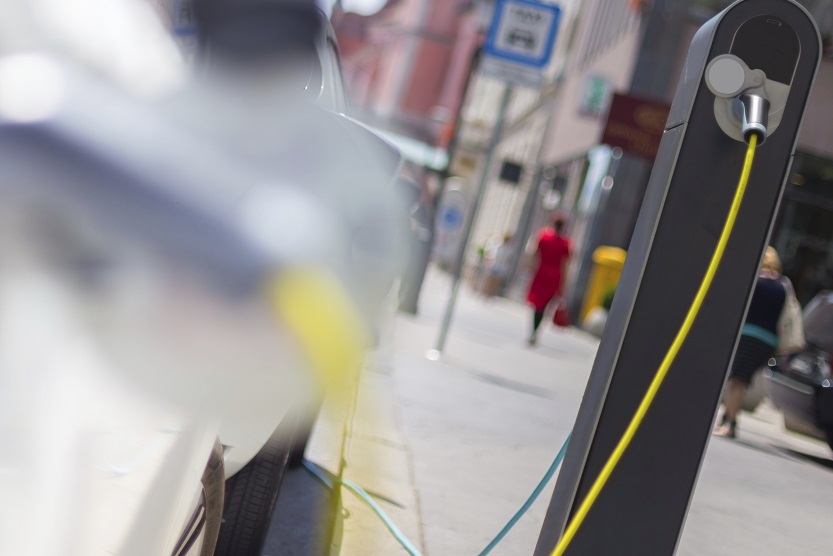
© istockphoto.com/kasto80
Smart grid technologies and energy storage systems are needed to ensure the 100% energy supply using renewable energies. Electric vehicles could play an important role in this respect by storing unused energy and feeding it back into the grid when needed. The requirements for including electric vehicles in such a way were established with ISO 15118. The norm describes the functions needed for incorporating electric vehicles into a smart grid. So, for instance, the level of charge and the energy requirements of the vehicle need to be communicated to the charging system. It must also be possible to control the charging time and capacity remotely. So far, ISO 15118 has only been applied to DC rapid-charging stations.
Until now, vehicle-to-grid (V2G) loading systems were needed to feed the electricity back into the grid from an electric vehicle, which was rather a complex task to handle and entailed high costs. An AC-based charging system would offer significant cost advantages, and the connection to a low-voltage grid would be much simpler.
The company ebee smart technologies GmbH and the Institute for Process Automation and Embedded Systems (PAES) of the Leipzig University of Applied Sciences (HWTK) are therefore implementing ISO 15118 for AC-based charging systems within the scope of the research project EVALIA. Hence, compatible electric vehicles are to support the high-level communication (HLC) for AC charging systems and establish direct communication with the charging station. Furthermore, the team is also developing the necessary hardware and software required by the charging system. With a cost-effective connection to the low-voltage grid AC charging systems could be easily installed in private households, parking lots and multi-storey car parks. Such a dense network of charging stations would facilitate the large-scale rollout of electro mobility and the implementation of EVs into the load management of a smart grid.
Another objective of the project is to develop business models for operators of multi-storey car parks and building maintenance services for expanding the low-cost AC charging system. The research project will run from August 2018 until August 2020 and, being a project in the category of electricity storage systems, it is being funded by the Federal Ministry for Economic Affairs and Energy (BMWi).


